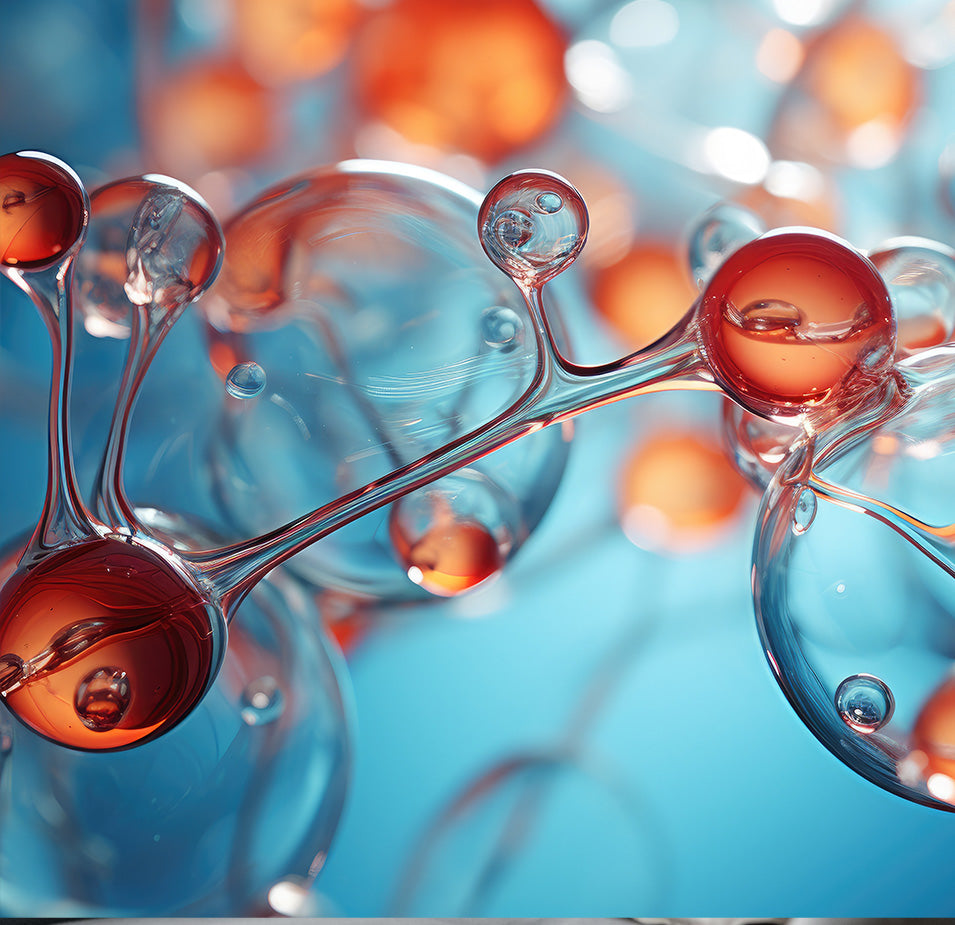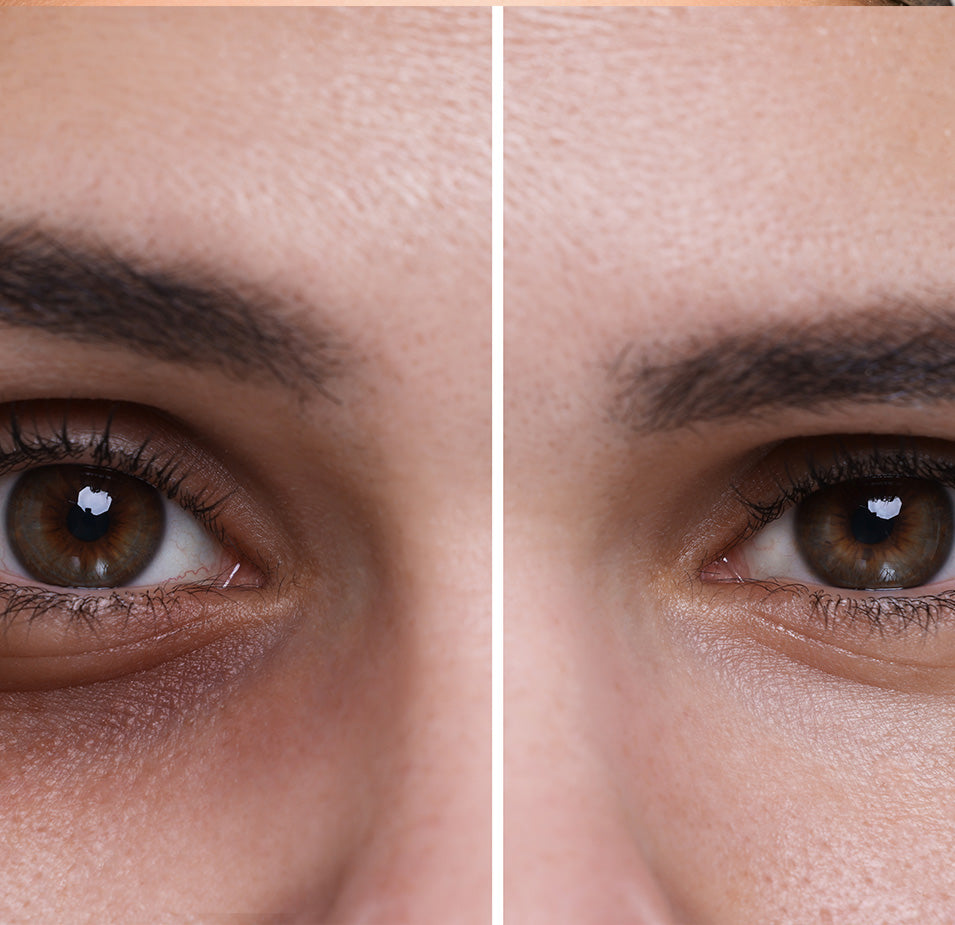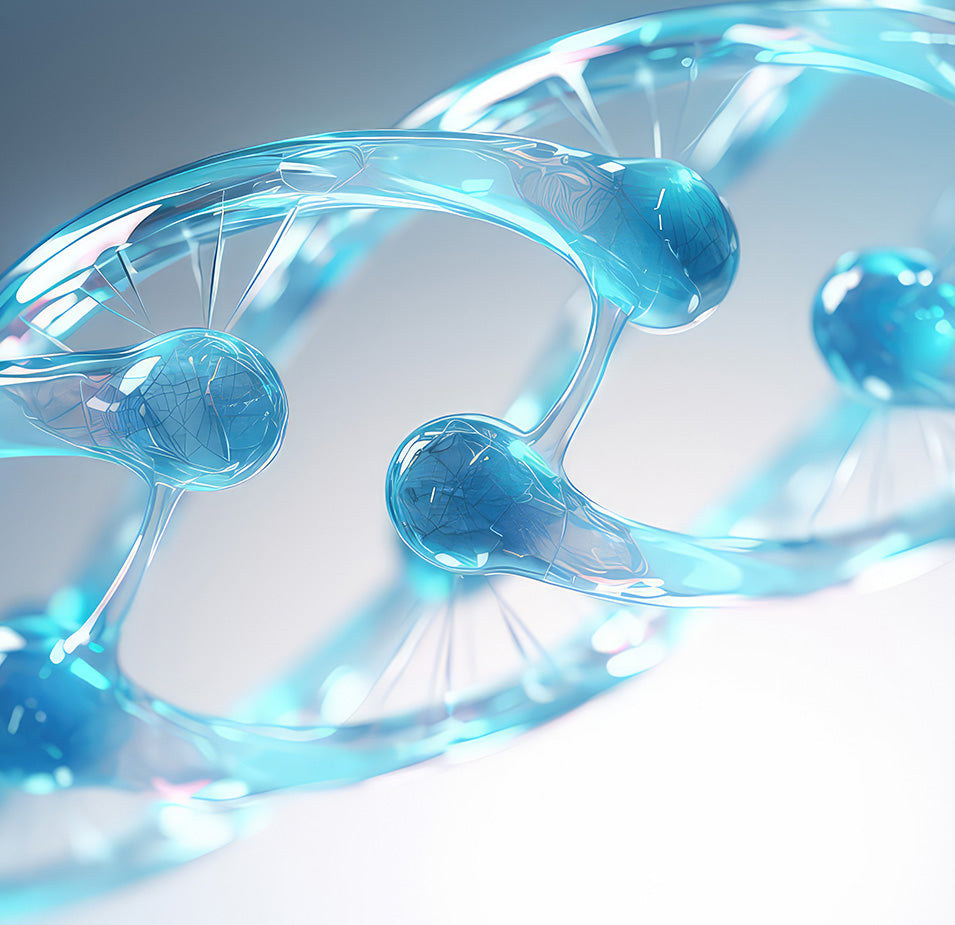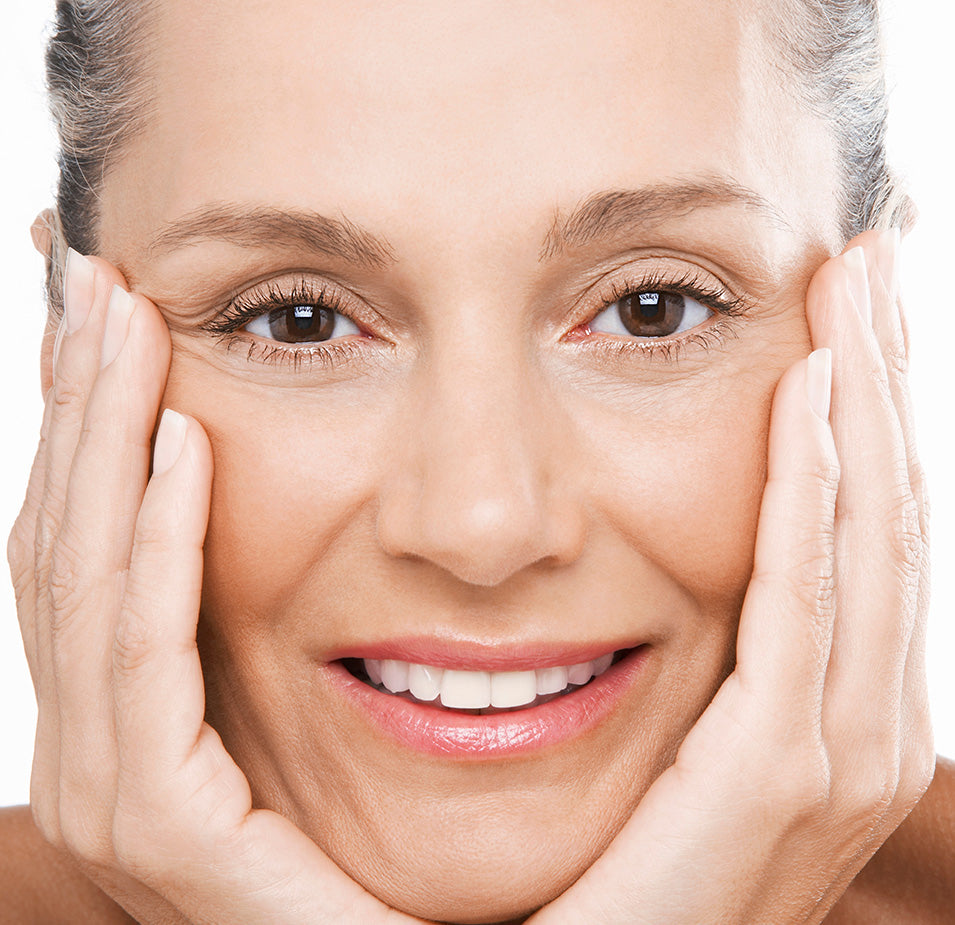
Far from being just “in your head,” psychological stress often manifests in physical symptoms. Headaches and digestive issues, for example, are common during periods of intense anxiety. Similarly, worry can show up on your skin in unwanted ways.
Stress and anxiety change the biochemical balance in our body by stimulating the release of stress hormones, chemical mediators which can change how our body looks and feels. Understanding the physical processes triggered by stress and how you can counteract them is an integral part of caring for your skin.
How does stress affect skin health?
Chronic stress is the enemy of healthy skin. When your body is constantly in anxiety mode, your skin will react negatively with symptoms like:
- Acne and outbreaks
- Worsening of inflammatory conditions
- Moisture loss
- Weakening of the outer barrier
- Premature aging
The brain and the skin are strongly linked through hormones in the body. One example of a hormone reaction is the “blushing” effect: when we feel nervous, embarrassed, or ashamed, our skin gets flushed and warm. We may even start sweating. This effect results from chemical processes linked to the emotion of shame or anxiousness.
Through hormone fluctuations, chronic stress can also trigger or worsen various skin ailments such as eczema, psoriasis, acne, and rosacea. How we feel inside shows on the outside because of how hormones influence our skin.
What happens in the body when you’re feeling stressed?
When you start feeling stressed, anxious, or panicked, it’s helpful to know that chemical changes in your body are occurring as part of a natural evolutionary response to pressure.
In ancient times, humans faced life or death situations on a regular basis. Hunter-gatherers needed to outrun mighty predators just to provide dinner for their families. As a survival mechanism, the human body developed a “fight or flight” reaction which prepares the body for high-stress
This bodily response to stress is governed by a system of hormone-secreting glands. A key group of these endocrine glands is stimulated when we get stressed out, activating an involuntary response in the body known as the sympathetic nervous system.
When the sympathetic nervous system kicks in, neurotransmitters or “chemical messengers” called epinephrine and norepinephrine are released into the body. As these hormones spike, our body responds with increased heart rate, perspiration, and heavy breathing.
Over time, persistently elevated levels of these stress hormones can lead to spiked cortisol—another hormone that, while important, can be damaging in excess. Overabundant cortisol can trigger skin symptoms like inflammation, itchiness, and oil production, which causes clogged pores and breakouts.
Stress hormones can also be produced as a response to environmental conditions, like sun exposure or extreme temperatures. This can lead to a vicious cycle in which mental stress causes stressed-out skin, and skin problems contribute further to mental stress.
How to manage stress for better skin
While elevated stress hormones may have helped our ancestors escape hungry lions, they are not as useful for the average person living a modern-day lifestyle. In fact, there is an epidemic of stress that only serves to harm wellbeing and quality of life.
Stress management is not only crucial for our mental health, but also essential for our physical health and better skin. There are many stress reduction strategies and techniques that can help you protect your skin, from cultivating a regular meditation practice to adopting a daily exercise routine.
Here are a few research-backed tactics to melt anxiety away and give your skin some much-needed room to recover.
1. Balance your diet
A healthy body relies upon a healthy mind. Consuming a well-balanced diet that’s rich in nutrient-dense foods will boost your energy while simultaneously helping your body and mind feel more relaxed.
Nutrient intake is directly linked to mood. Fatigue, depression, and stress can be caused by a deficiency in certain nutrients like Vitamin D. On the other hand, overconsumption of some nutrients, like polyunsaturated fatty acids, can dampen your mood and lead to inflammation of the skin and body.
For many of us, the relationship between stress and diet is reciprocal. If we have a hard day at work, we might be more tempted to hit the cookie jar or have one too many glasses of wine. A stressful lifestyle can also make it difficult to incorporate healthy meals because you’re just too busy.
But when stress eating becomes a habit, it will only lead to further stress. Adequate nutrition is absolutely essential for mental health and happy skin.
2. Make time for hobbies
Never underestimate the importance of “me time.” When you carve out time to do things that make you happy and satisfied, you become a better leader, parent, friend, human being, or whatever your goals may be. Whether you’re reading, painting, creating art, watching films, playing games, working out, or doing any other activity you love, taking time for yourself is anything but selfish.
Pampering your skin is a valuable use of the time you set aside for yourself each day. A few minutes spent on skincare will pay huge dividends in the short and long term. You’ll immediately feel refreshed, and your skin will be healthier over time. After cleansing, massaging your skin with a high-quality moisturizer is a great way to give your skin an instant stress-relieving boost.
3. Open up about your feelings
If something is bothering you, discussing it with a trusted confidant can help you sort things out while relieving stress and reducing pressure. Bottling up your emotions and experiences will only deepen your problems.
Talking with a loved one or friend can be a great way to process life’s trials and tribulations. But everyone can benefit from speaking with a professional, especially if you’re dealing with something heavier than everyday challenges.
A qualified mental health professional can help you devise a personalized wellness plan and coach you through adopting self-care strategies for a life of peace, prosperity, and great mental and physical health.
Conclusion
Our mental health and the state of our skin are intricately interconnected. Psychological changes can influence our skin just as much as the weather or other outside factors. So to get the clear, vibrant skin you desire, don’t underestimate the power of self-care in all aspects of your life. It will show in the way your skin and your smile glow.
References
- Chen, Y., & Lyga, J. (2014). Brain-skin connection: stress, inflammation and skin aging. Inflammation & Allergy-Drug Targets (Formerly Current Drug Targets-Inflammation & Allergy) 13(3), 177-190.
- Saric-Bosanac, S., Clark, A. K., Sivamani, R. K., & Shi, V. Y. (2020). The role of hypothalamus-pituitary-adrenal (HPA)-like axis in inflammatory pilosebaceous disorders. Dermatology online journal, 26(2).
- Buske-Kirschbaum, A., Geiben, A., Höllig, H., Morschhäuser, E., & Hellhammer, D. (2002). Altered responsiveness of the hypothalamus-pituitary-adrenal axis and the sympathetic adrenomedullary system to stress in patients with atopic dermatitis. The Journal of Clinical Endocrinology & Metabolism, 87(9), 4245-4251.
- Popma, A., Jansen, L. M., Vermeiren, R., Steiner, H., Raine, A., Van Goozen, S. H., ... & Doreleijers, T. A. (2006). Hypothalamus pituitary adrenal axis and autonomic activity during stress in delinquent male adolescents and controls. Psychoneuroendocrinology, 31(8), 948-957.
- Antoniewicz, J., Nedoszytko, B., Lange, M., Wierzbicka, J., Górska-Ponikowska, M., Niedoszytko, M., ... & Żmijewski, M. A. (2021). Modulation of dermal equivalent of hypothalamus-pituitary-adrenal axis in mastocytosis. Advances in Dermatology and Allergology/Postȩpy Dermatologii i Alergologii, 38(3), 461.
- Liu, S. J., Xie, Y. F., Dai, L. B., & Du, G. W. (2011). Expression of secretions of hypothalamus-pituitary-adrenal axis in human hypertrophic scar. Zhonghua Shao Shang za zhi Zhonghua Shaoshang Zazhi, Chinese Journal of Burns, 27(6), 432-435.
- Guzek, D., Kołota, A., Lachowicz, K., Skolmowska, D., Stachoń, M., & Głąbska, D. (2021). Association between Vitamin D Supplementation and Mental Health in Healthy Adults: A Systematic Review. Journal of clinical medicine, 10(21), 5156.

















